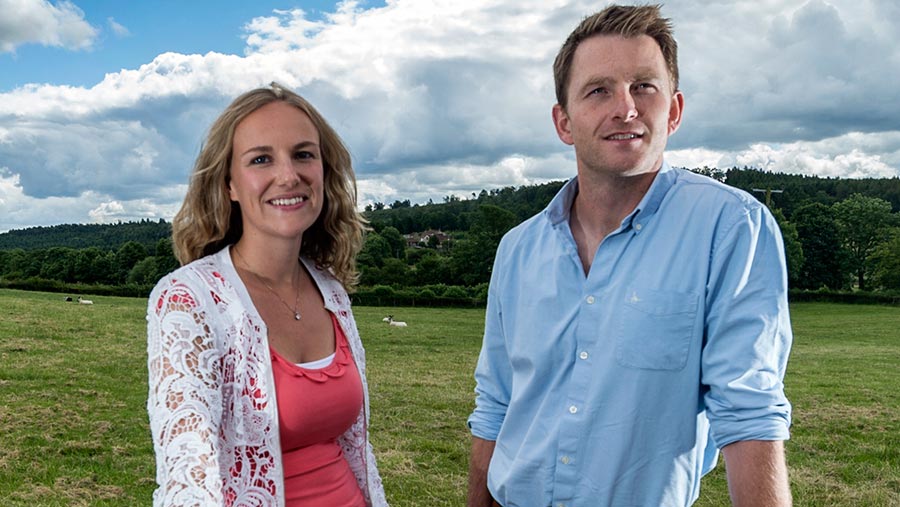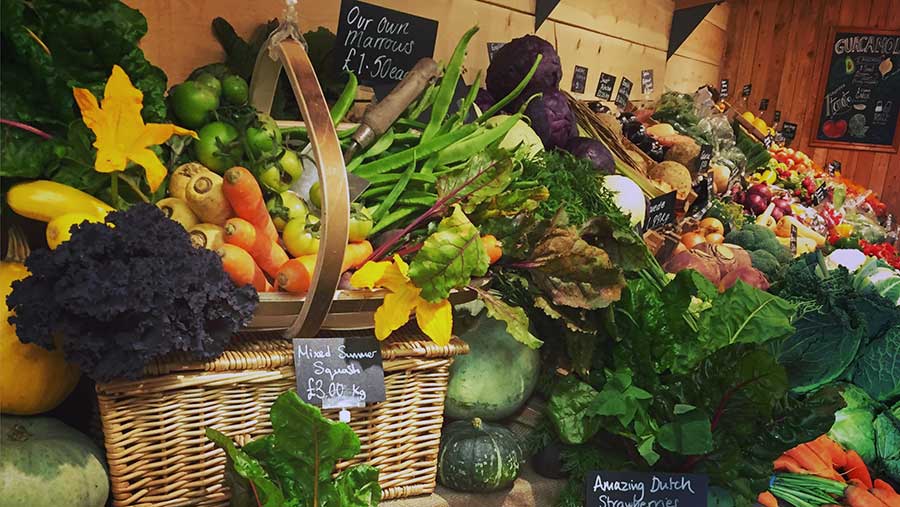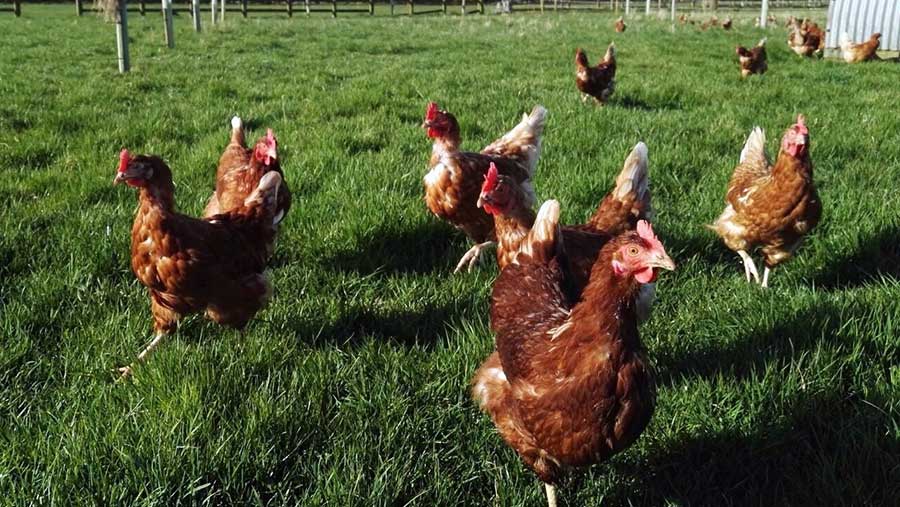Farm couple crack social media to drive egg diversification
 Ben and Emma Mosey © James Hardisty
Ben and Emma Mosey © James Hardisty Farm shops remain a lifeline for rural towns and villages, despite the increasing presence of large supermarket chains.
One particularly popular one is Minskip Farm Shop, near Boroughbridge, headed up by husband-and-wife duo, Ben and Emma Mosey.
The couple met at university 10 years ago, when Emma was studying English literature and Ben read for a degree in geology.
See also: 4 ways in to a successful farming career
Ben came from a mixed farm in Yorkshire and while the couple decided to head overseas to work in Australia, they always maintained a passion for food production.
“Because Ben’s family are farmers, he didn’t realise how unique an upbringing on a farm was – I’d never been on a farm until I met him,” explains Emma.
“I think, because of this, I became really interested in food and the connection between farm and fork.”
Unique opportunity
When the couple returned home to Yorkshire in 2017, they were presented with the unique opportunity to take over a busy farm shop and a 16ha farm following the retirement of the previous owners, Pauline and David Barker.
“With this passion for food, taking on the farm shop seemed like the perfect opportunity to get involved in our own venture,” says Emma.
While taking over the shop and farm was something totally new for the couple, Minskip Farm Shop had been running for more than 40 years.

Minskip Farm Shop vegetable stall
“The business we inherited was a strong one. It began with Pauline and David just selling vegetables and eggs at the side of the farmhouse and gradually built up to an actual shop.”
Though Ben had experience working on a farm, moving into egg production was a whole new challenge for the couple and they had to seek advice and guidance from others in the sector.
“Coming into farming was a massive learning curve, it really did push us out of our comfort zone,” says Emma.
“We got a lot of help from the previous owners, as well as Chippindale Foods – who we wholesale eggs to – and Blue Barn poultry, where we source our pullets from. We also had a lot of support from other producers.”
Today, the farm is home to 6,000 hens with about 1,000 eggs sold in the shop every day, all within 48 hours of lay, while the rest are sold through Chippindale.
“We get lots of positive comments from customers about the quality of our eggs,” says Emma. “Because they are so fresh, they are perfect for poaching.”
The Moseys have also increased the variety of stock in the shop by sourcing local produce from nearby farmers, and have added three rare breed piglets and four alpacas. In just two years, the couple has managed to increase turnover by 40%.
Social savvy
This is largely due to their effective use of social media and a drive to help educate the public about food and its production.
“Social media is a big part of what we do here,” says Emma. “Because we have the public on site so often, it soon came to our attention that there was a genuine interest in where the produce came from, so we made education our main focus.
“Our hens have a very happy life and we want to show that off. Having an open-door approach is very important to us – it is what the customer wants, and we definitely want 100% transparency in everything we do,” she explains.

Minskip Farm hens
While it’s easy to get distracted by the vibrant pictures of fresh produce and perfectly poached eggs on the Minskip Farm Shop Instagram page, there is a very tactical approach to social media promotion, explains Emma. “We have been working on a strategy for social media this year, which covers seven main pillars.
“The content that has proved most popular has been ‘A day in the life of the farm’, pictures of produce, information on what we are doing to be sustainable and our zero-waste policy, as well as anything educational about the egg production cycle.”
In addition to promoting food production online, the couple has also hosted a number of on-farm events, which have proved popular with customers.
“Our target market is young families so this year we have held events that the whole family can get involved in,” she adds.
“We had an ‘Egg-streme Easter’ event, which involved fun games such as egg battles. There was an educational twist as we explained about different shell types and why certain eggs are stronger than others.
“The children had to try to work out which eggs had the strongest shell and would last the longest in an egg battle. We also used raw eggs, so it was definitely messy fun.”
The couple also put on an event last May that focused on what free-range really means.
“Ben set up a pretend range to demonstrate how the hens eat and where they can roam and how it compares to their natural environment, so our customers got to see exactly how free-range hens are reared.”
Rehoming scheme
One of the most successful projects this year has been their rehoming scheme. “We started getting a lot of questions about where hens go after they’ve finished laying,” explains Emma.
“It was a difficult question to answer and it didn’t sit well with us, so we looked into the possibility of rehoming the birds.”
The couple were blown away with the response and, less than a week after getting a story in the local newspaper, had managed to rehome 6,000 hens.
“A lot of the birds went to other farmers and local families, as well as wildlife organisations. It is great to be able to say we are a slaughter-free farm.”
Not only is the farm and farm shop a hit with the locals, but Emma and Ben’s thriving business has also been recognised at a national level, most recently winning the British Free Range Egg Producers Association’s Retailer of the Year Award 2018.
So, what next for the couple? “Our ultimate goal is to become a food destination where people can eat, shop and learn about how what is on their plate comes from the farm to the fork,” says Emma.
“We definitely feel the approach we are taking is going to be a major part of the new generation of farm shops – we want to make it what we are famous for.”
